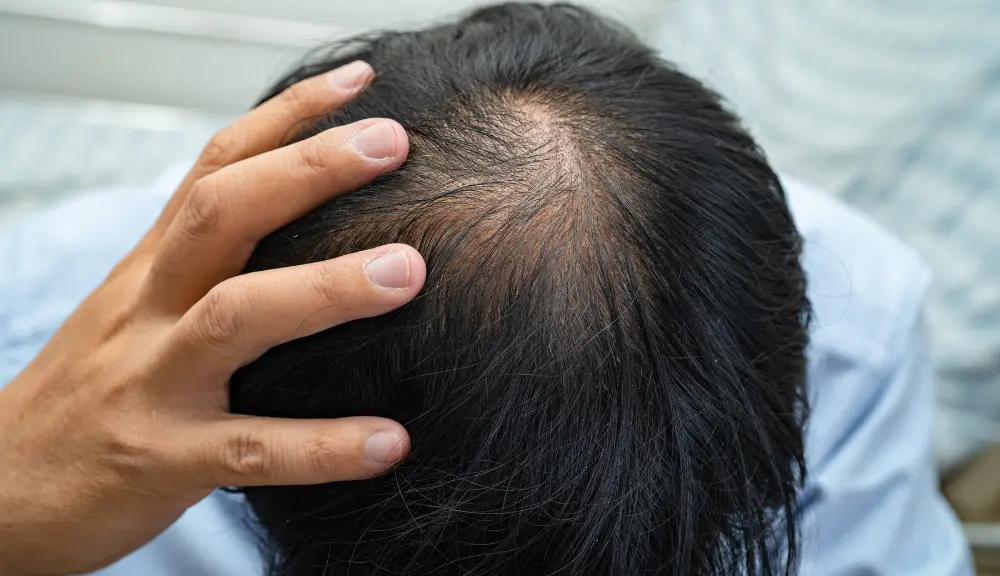Intermittent fasting has been celebrated as a wellness miracle helping with weight management, boosting insulin sensitivity, and even calming inflammation. But the beauty world has a new question on its hands: could this intermittent diet be secretly sabotaging your hair?
Can Intermittent Fasting Really Thin Out Your Hair? What Does Research Says?
Study revealed intermittent fasting could harm the very stem cells responsible for hair growth.
A groundbreaking study published in Cell (2024) by researchers from Westlake University, led by Dr. Bing Zhang, reveals that intermittent fasting may actually slow hair regrowth and reduce volume.
Yes, the very practice many swear by for longevity might be putting your strands on pause.
The Science Behind It
In mouse experiments, animals put on strict fasting schedules failed to regrow shaved hair as quickly as their free-feeding counterparts. In fact, mice allowed to eat freely saw their fur bounce back within 30 days, while the fasting group struggled to regain volume
A small human study of 49 healthy adults found that those who fasted for 18 hours a day experienced hair regrowth that was 18 percent slower than those who didn’t restrict their eating windows.
This is the first real-world evidence connecting intermittent fasting with delayed hair recovery, raising questions for anyone who is both a wellness devotee and a hair enthusiast.
Why Fasting Affects Hair Follicles
During fasting, the body switches to fat metabolism, breaking down stored fat and releasing free fatty acids into the bloodstream. While great for burning calories, these fatty acids appear to damage activated hair follicle stem cells, the microscopic engines of growth.
The study suggests the fatty acids trigger oxidative stress and even cell death, weakening the follicles’ ability to regenerate. Its quite similar like ozempic causing hair fall.
There is, however, a glimmer of hope.
In the mouse studies, applying vitamin E topically helped protect the follicle stem cells from oxidative damage and preserved hair regrowth. This points to a potential protective role of antioxidants in maintaining hair health during fasting periods.
What Does This Mean For People Who Swear By Intermittent Fasting?
It does not necessarily mean you have to abandon the practice altogether. The diet still offers proven benefits for weight control, metabolic health, and reducing chronic disease risk.
But it does call for balance.
If you are fasting and noticing changes in your hair like thinning, slower growth, or reduced volume, it may be worth adjusting your routine or adding protective strategies.
Experts recommend ensuring your hair fall control diet is still nutrient-rich even within restricted eating windows. Prioritize protein, iron, B vitamins, zinc, and omega-3 fatty acids, which are all critical for hair strength and regrowth. Consider incorporating antioxidant-rich foods such as berries, leafy greens, and nuts to combat oxidative stress.
Topical antioxidants like vitamin E oils or anti-hair fall serums could also play a role, though human trials are still needed to confirm their benefits.
Practical tips for those concerned about their hair include monitoring any noticeable changes in thickness or growth cycles, consulting with a dermatologist or trichologist if issues arise, and avoiding unnecessary stressors on the hair such as over-styling, using color fading shampoos, frequent chemical treatments, or aggressive brushing during fasting phases.
Ultimately, intermittent fasting remains a powerful weight loss remedy, but it also comes with a steep price. For those chasing both metabolic health and a full, glossy mane, the key may be mindfulness. Your body may thrive on an empty stomach, but your hair follicles might be silently pleading for extra care and maybe a little extra vitamin E.








